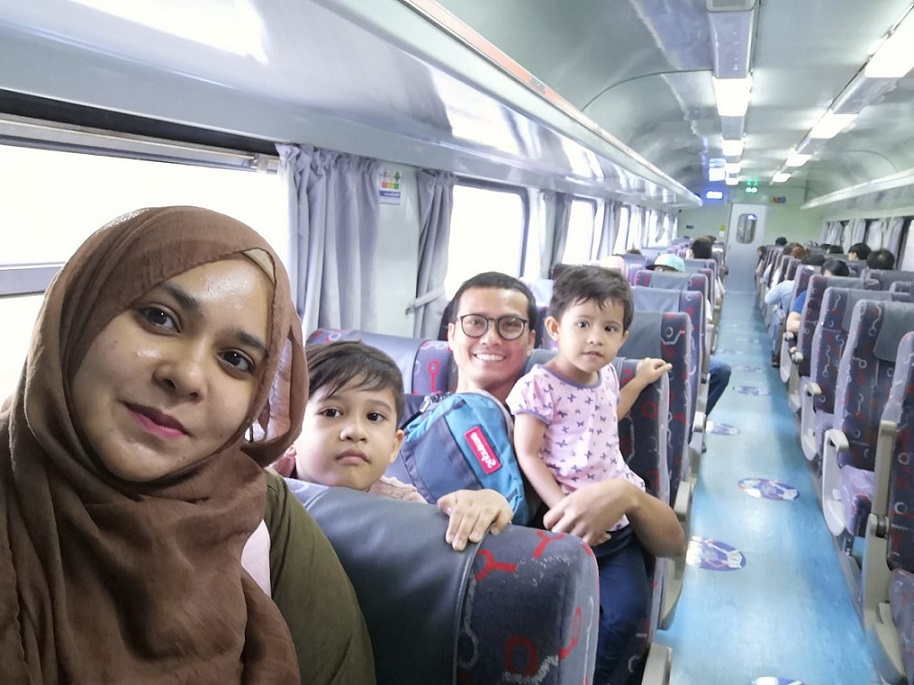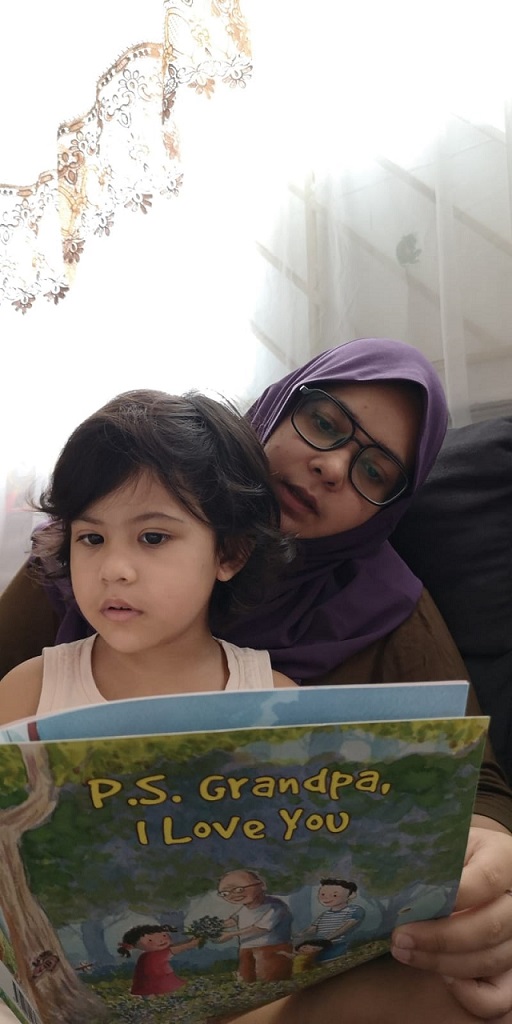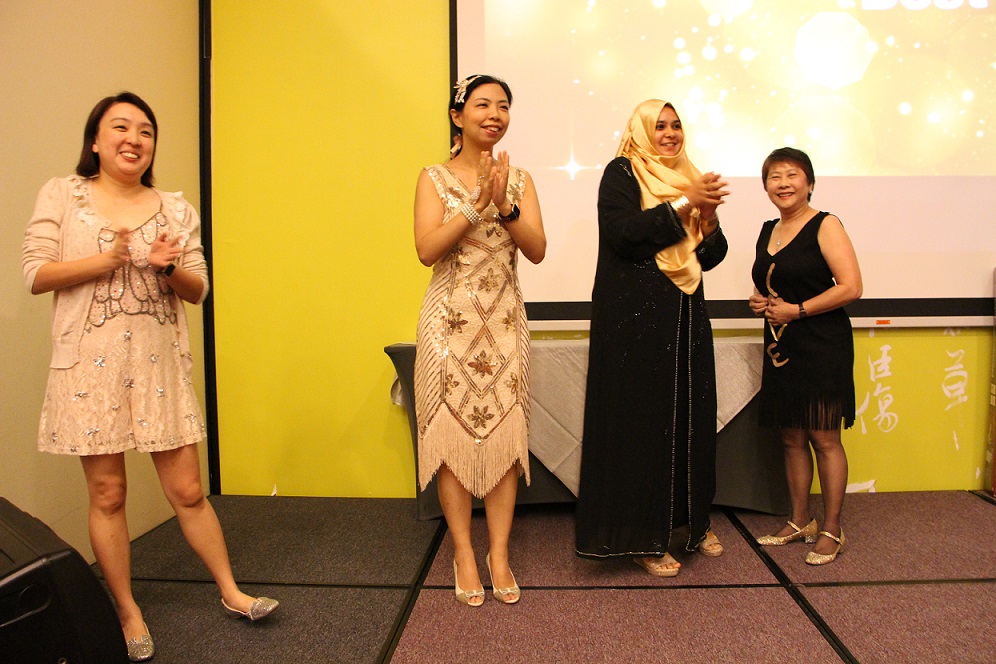
Close


“Who needs a superhero when you have a mother?” quips Mizah.
Imagine facing a tremendous workload, troubles segregating your work and personal life and simultaneously having to manage your children.
These are just some struggles Senior Palliative Care Nurse Mizah faces daily in her course of work. Indeed, many can attest that handling both work and maternal responsibilities is a Herculean yet heroic duty.
Despite these challenges, Mizah maintains a cheerful disposition. “They need a lot of attention, misbehave, cry and fight a lot,” Mizah says, referring to her two artsy and talented children, Habebe* and Pamkin*, aged seven and three respectively. “Especially around their mother!” she adds with a laugh.
Thankfully, she is blessed with a supportive family. Her husband and her mother help manage her children. After returning from a day’s hard work, hubby often gently reminds her to prioritise spending time with her children.
As a palliative care nurse, Mizah looks after the wellbeing of both her patients and their families. She coaches and guides both patient and family, together with a team of dedicated doctors, nurses and medical social workers. Assessing the patient’s biophysical and psychosocial needs and discussing end-of-life matters with HCA’s beneficiaries are also among her many tasks.
As a straightforward mother, Mizah adopts an open-minded approach when educating her loved ones on the subject of death. She reads a book titled P.S. Grandpa, I Love You to her children and encourages them to ask questions related to death and dying. Written by one of HCA’s beneficiaries, Jumaini Ariff, the book helps readers recognise the grieving process and stimulates meaningful discussions on the passing of a loved one.

Mizah reads ‘P.S. Grandpa, I Love You’ to her child. This book was written by Jumaini Ariff, one of HCA’s beneficiaries, to help children and youth cope better with grief and loss.
Additionally, Mizah and her family watch many movies with death scenarios. Their favourites include Coco, Mother’s Day (Rugrats), and The Good Doctor. She also shares stories about her patients. By doing so, her children have gained confidence in exploring the topic of death with her.
“They are comfortable in asking questions about death and dying. My son always asks questions like: ‘What happens to the kids if their parents die?’ Why did Atok** have to die first?” Mizah says. “And whenever he misses his Atok, he talks to his photo and requests a visit to the cemetery.”
Mizah recalls a touching story from one of her patients who left a deep impression on her. When she was an ICU nurse, a grieving elderly mother requested her to read the Book of Psalms, from the Bible, to her dying son who was suffering from a traumatic brain injury caused by a road traffic accident.
However, she did not have a Bible on hand and had to ask around. Fortunately, Mizah and her fellow nurses were able to get a priest in time to help provide spiritual support to the family. The experience gave her an epiphany about how the spiritual and religious needs of patients near death’s door are often not attended to.
“A simple request can go unmet because we are not taught how to handle it, or because we are simply not comfortable with such requests.” Mizah says.
“Palliative care chose me actually!” quips Mizah.
Mizah’s sole reason for joining palliative care stemmed from her father’s final wish to die at home. In order to fulfil his desires, she had to learn how to palliate him. So becoming a palliative care nurse was a very timely opportunity for her, as it arrived when she needed it most.

Mizah (second from right) and her colleagues at HCA’s Year-End Dinner in 2018.
But there have also been times when Mizah was close to giving up and calling it quits. “Sometimes, we miss steps in managing our patients and we learn from it,” Mizah says. She related this to a very impactful incident, when a patient’s grieving wife called her ‘incompetent’ and said she shouldn’t be a nurse.
“It triggered my anxieties and burnt me out,” Mizah says. “I started to become afraid of making mistakes and getting called incompetent. I was worn out from trying my best to do the right thing.”
However, her inspirations and motivations for joining the field of palliative care kept her going. As Arab Muslim writer Imam al-Shafi’i puts it, “My heart is at ease knowing that what is meant for me will never miss me, and that which misses me was never meant for me.”
Mizah holds this saying dear to her heart as it has helped her hold faith in life’s twists and turns. It made her realise that her aforementioned experiences were necessary for her own personal and career growth. She learnt to be forgiving, compassionate, empathetic and kind towards herself and others.
“It’s about trusting, letting go and knowing that what is meant for you will come your way,” Mizah explains. “But it doesn’t mean you don’t have to work hard towards your goals. Like if that promotion you wanted didn’t happen, it’s not meant for you.”
“Have faith that the universe has bigger plans for you.”
One of Mizah’s main inspirational figures is Dr. Allyn Hum, who was her late uncle’s palliative care doctor. Greatly moved by the work Dr. Hum did for her late uncle, she describes Dr. Hum as a compassionate, understanding lady who is well-versed in her psychosocial work. Others who played an influential role in her life include her late father, her colleagues and patients, who have guided her towards becoming a better nurse.
“I remind myself of the very intention why I chose this work and those who inspire me continuously keep me grounded whether they know it or not,” Mizah remarks.
*not their real names.
**Atok means grandfather in Malay.